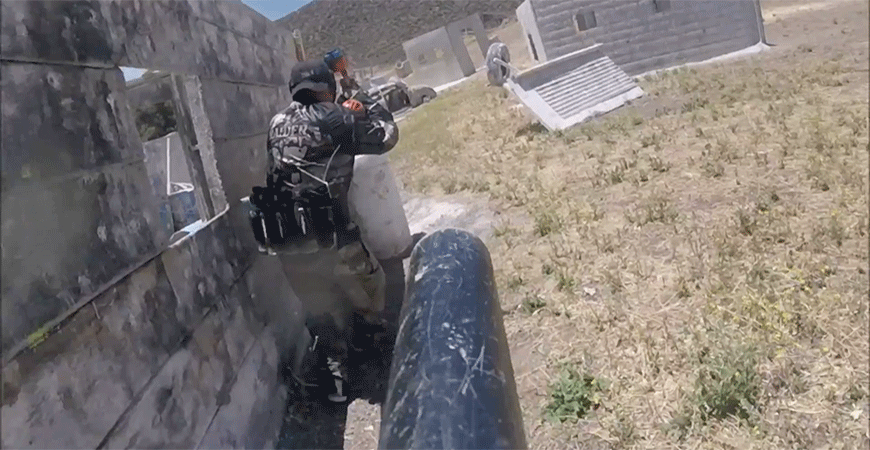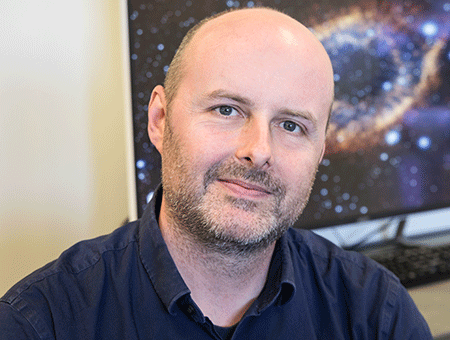
A new Pew Research survey shows that one-third of Americans have trust in a higher power or spiritual force, whether they call it “god” or not, and two new studies show that people who think they have that force in their corner feel empowered in battle.
Two novel experiments by UC Merced Cognitive Science & Information Systems Professor Colin Holbrook also indicate people who say they “feel” the presence of an invisible posse of supernatural allies have a stronger sense that they did well after the match-up, even when the outcome wasn’t a clear victory.
“There’s substantive prior literature that agrees with these findings, but those experiments have been primarily conducted in labs or through online surveys,” Holbrook said. “What people do in a lab setting might not always translate to the real world. In these experiments, we tried to realistically simulate violent conflict.”
He and his colleagues conducted two field studies in which people engaged in different forms of realistically simulated violent conflict — a team paintball battle and martial arts knife fighting.
In both studies, participants were divided into two groups. One group participated in a spiritual visualization in which members were asked to take a knee (evoking a prayerful stance) and listen to a soothing voice telling them to breathe deeply and picture a benevolent, guiding spiritual force around them and within them. The other group had a secular visualization in which members were asked to picture standing near and touching a beautiful tree.
In the paintball match-up, as a new paper in the journal Human Nature shows, teams of participants who engaged in the spiritual visualization exercise felt more confident going into the battle.
After the battle, participants who had visualized supernatural support evaluated both their personal and team performance as superior — even when they did not emerge victorious. The team’s members also felt as though they could repeat that performance if another battle was held and were significantly more confident that their team would win future battles.
“In previous studies, overconfidence and positive illusions have been positively correlated with religious cognition,” said Jeremy Pollack, co-lead author on the studies, a doctoral student in psychology at Grand Canyon University. “And since religious belief systems have been widely suggested to be a signal of ingroup membership, it makes sense that thinking of God may make us feel more confident — not just in ourselves but in our groups, in the context of agnostic competition.”

In the martial arts knife-fighting experiment, detailed in the journal Religion, Brain & Behavior , the researchers found a similar effect. Participants were more confident in their personal performances following a simulated group prayer for supernatural help in battle. And even though the match-ups broke into one-on-one battles, rather than a group battle, they had a similar — but less clear — tendency to be confident that all the members of their group could also prevail in their confrontations.
In this experiment, the researchers also measured the participants’ religious beliefs, feelings of connection to supernatural forces and political orientation as measured by their views on topical issues such as gun control, immigration and abortion. The people who held religious beliefs tended to be more conservative and felt surer that they, individually, could do better, and that their team had won.
Political conservatives also showed more battle confidence, but this effect seemed to be explained by religiosity more than political orientation.
“Religion and political conservatism are traditionally correlated in the U.S., although they are distinct, and even negatively correlated in some societies,” said UC Merced psychology Professor Jennifer Hahn-Holbrook , co-author on the study. “Conservative movements in the U.S. have traditionally embraced beliefs in a powerful deity that can intercede on our behalf, which may explain why peoples’ religious beliefs drove battle confidence in our study more so than did opinions at the ballot box.”
The results, Holbrook said, inspire him to conduct more studies, including some to see whether increased confidence actually leads to better performance.
“It was interesting to see that in the team activity, the people who felt more spiritually connected had greater levels of confidence in their abilities,” he said.



